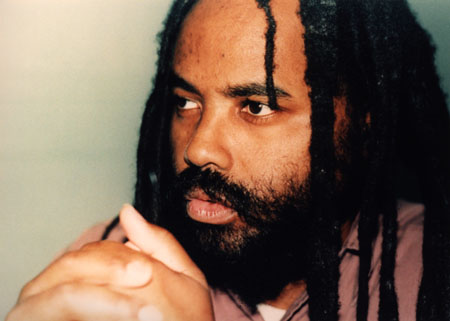Mumia to Berlin conference: ‘Who runs the world?’
Below is Mumia Abu-Jamal’s message to the 3,000 people attending the Jan. 11, 2025, Rosa Luxemburg Conference in Berlin in person plus 25,000 on livestream, organized by junge Welt and supported by the Mumia German Collective. (jungewelt.de)

Mumia Abu-Jamal
Who runs the world? Hallo Freunde, wie gehts? [Hello friends, how’s it going?]
As we look out into the world, we once again view the spectacle of war. It is, to be sure, a colonial war: one fought by a regional hegemon, Israel, against what is essentially an unarmed population, Gaza, but one side has the most sophisticated weapons, including fighter jets, while the other side has, well, rocks. To be fair, the other side has missiles, yet, but most of them are unable to pierce what has been called the Iron Dome [in Israel], which safely detonates over 90% of all missiles, which are incoming.
One is reminded of the overwhelming power of the U.S. military when it launched the Iraq War, and later, the war in Afghanistan, in March and August of 2003 respectively. The Iraq War promised, in the words of former U.S. President George W. Bush, weaponry that would evoke both shock and awe. It turned out to be disastrous, in the human and social costs, with millions becoming refugees and both societies shattered.
The wars began as a kind of neoconservative fever dream. Took trillions out [of] the U.S. budget and did little to support U.S. objectives. The Iraq War, pitched as a search for weapons of mass destruction, found nothing of value or strategic. As for Afghanistan, the U.S. negotiated a withdrawal that left the Taliban in control of the ancient country that became known as the graveyard of empires. And although the neocons launched the wars to change the face of the Middle East, most foreign affairs scholars consider the Iraq-Afghanistan wars as two of the biggest blunders in American foreign policy and foreign affairs.
What this shows us is that there is a limit to the reach of military power. Countries can mobilize truly, but if they can’t reach their objectives, that weaponry is wasted.
The Iraq-Afghanistan wars are also instructive in another respect. They were preceded by the biggest anti-war protests in world history. But what’s the point, you ask? Didn’t these protests around the world, mass marches, fail? Yes, if you mean they failed to stop the wars. But history has another judgment. For history shows that they, the people, were right and their elected leaders, the neocon think tanks, much of the corporate media and of course the military-industrial complex, were wrong.
It also means that in the future, protests may have to actually be bigger, bigger and bigger. And perhaps labor actions should be integrated into such protests. Those vast protests show the leakages and to be honest, the weaknesses of representative democracy, for when the so-called representative ignores the will of the people, that’s not democracy. That’s the opposite of democracy. That’s autocracy under a democratic mask.
So who runs the world? The people do when they fight long enough, hard enough. The great Black leader Frederick Douglass once said: “Power concedes nothing without a demand. It never did and never will.” So make the demand and build, make the demand and build with love, not fear.
Hier spricht Mumia Abu-Jamal. Auf Wiedersehen. [This is Mumia Abu-Jamal speaking. Goodbye until next time.]
